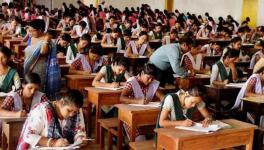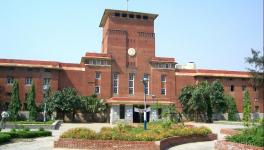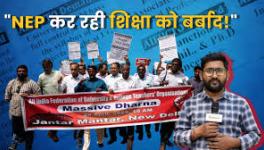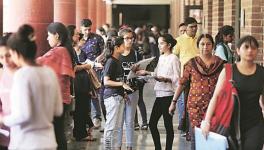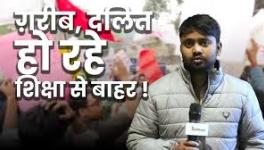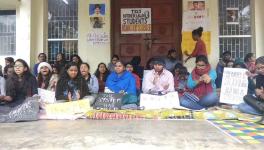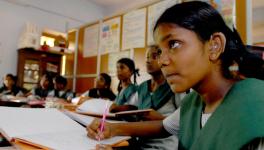Academicians Call for Universities to Unite With People to Retain Their Democratic Character
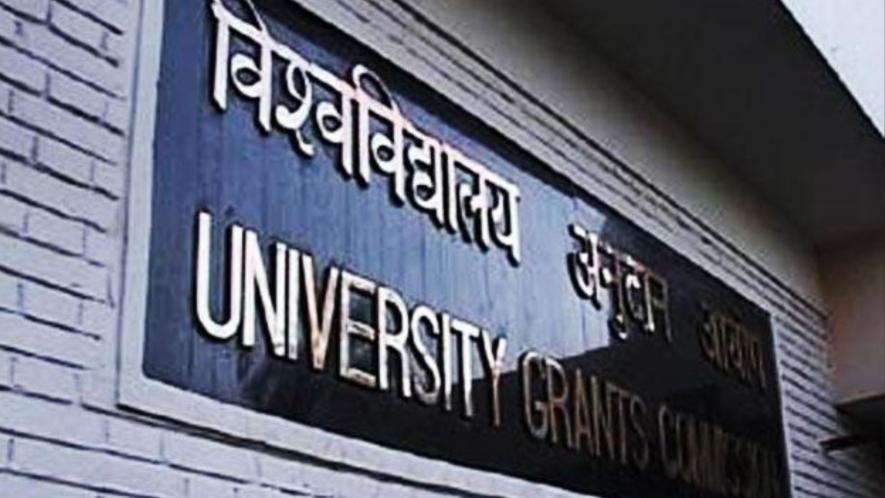
New Delhi: Academicians feel that the New Education Policy (NEP) 2020 and the Common University Entrance Test (CUET) will “exclude” a majority of students, especially poor and from marginalised and weak sections, from education.
“It is easy to understand which groups of students will exit undergraduate courses—poor students, particularly girls, Dalits and Adivasis,” SukhdeoThorat, former University Grants Commission (UGC) chairman, said at ‘The Crisis of Higher Education’ convention at Jawaharlal Nehru University (JNU).
Hundreds of academicians, teachers and students gathered for the convention, organised by the Federation of Central Universities Teachers Association (FEDCUTA).
On the shrinking democratic spaces in academics, Anita Rampal, former dean of the Central Institute of Education, Delhi University (DU), said that teachers and institutions are “losing their autonomy to the diktats of the Centre, which fails to understand children’s needs”.
“The new national curriculum framework has done away with science and social science at the primary level and focuses on numeracy and literacy. It is said that children develop concepts in later stages. So, the idea is to keep people busy,” she said.
“The NCF document already has 628 pages and nine more volumes are coming. Similarly, gardening and talking to local shopkeeper is part of pre-vocational capacities. We never used these words. Our policies always said that everyone should get the same education till class 10, and work is part of education.”
Terming the NEP “a charade of choices”, she said, “The policy knows how to hook the middle classes. There are 16 courses at the secondary level. Students are gasping to deal with five courses now. There are states where 50% of students fail board exams in many districts.”
Ravi Kumar, an associate professor at South Asian University suspended for signing a letter addressed to the administration to resolve the deadlock following the student strike, said that universities are “becoming vulnerable because they have been aloof from outer societies”.
“If our society behaves in a casteist and communal manner, it would also be reflected in universities. JNU was consistently attacked when its students protested the fee hike and won. However, people outside the campus were indifferent,” he said.
Stressing his point further, he said, “The Jamia Teachers Association was suspended. We were suspended, but our colleagues acting as rectors and in other positions are silent. In these dark times, we must reflect on why it is happening—because we are aloof from other people struggling outside for their rights. We must align with people’s movements if we want our universities to retain their democratic character.”
Kumar asked why “our colleagues appointed proctors and rectors become agents of the oppressive system? I think the utmost duty is to forge solidarity. Universities must be at the forefront of the protests against Manipur violence and denounce violence against Dalits”.
He further added that universities should unite with other people. “Please, remember the Mexican struggle where students were joined by farmers, workers and other sections of society to demand an end to authoritarianism. This is the right time to assert ourselves. The staff of universities should unite with workers outside.”
The academicians also pointed out that the CUET’s introduction seriously threatens school education as students skip classes to focus on coaching for university entrance tests.
Apoorvanand, a professor of Hindi at DU, said that most CUET questions are based on the CBSE syllabus, discouraging students of state boards.
He called for decentralisation of authority over universities. “First, the UGC periodically issues diktats to universities. Second, admissions are controlled through CUET. Third is controlling the appointment of teachers. This is an extraordinary situation akin to totalitarianism, where each institution has been mandated with one objective.”
It is not that the “UGC was completely autonomous. We are
served notices to upload images of participation in Yoga Day or videos of listening to the 100th episode of Mann ki Baat. The autonomy of institutions to decide their affairs is gone now”, he added.
Get the latest reports & analysis with people's perspective on Protests, movements & deep analytical videos, discussions of the current affairs in your Telegram app. Subscribe to NewsClick's Telegram channel & get Real-Time updates on stories, as they get published on our website.









